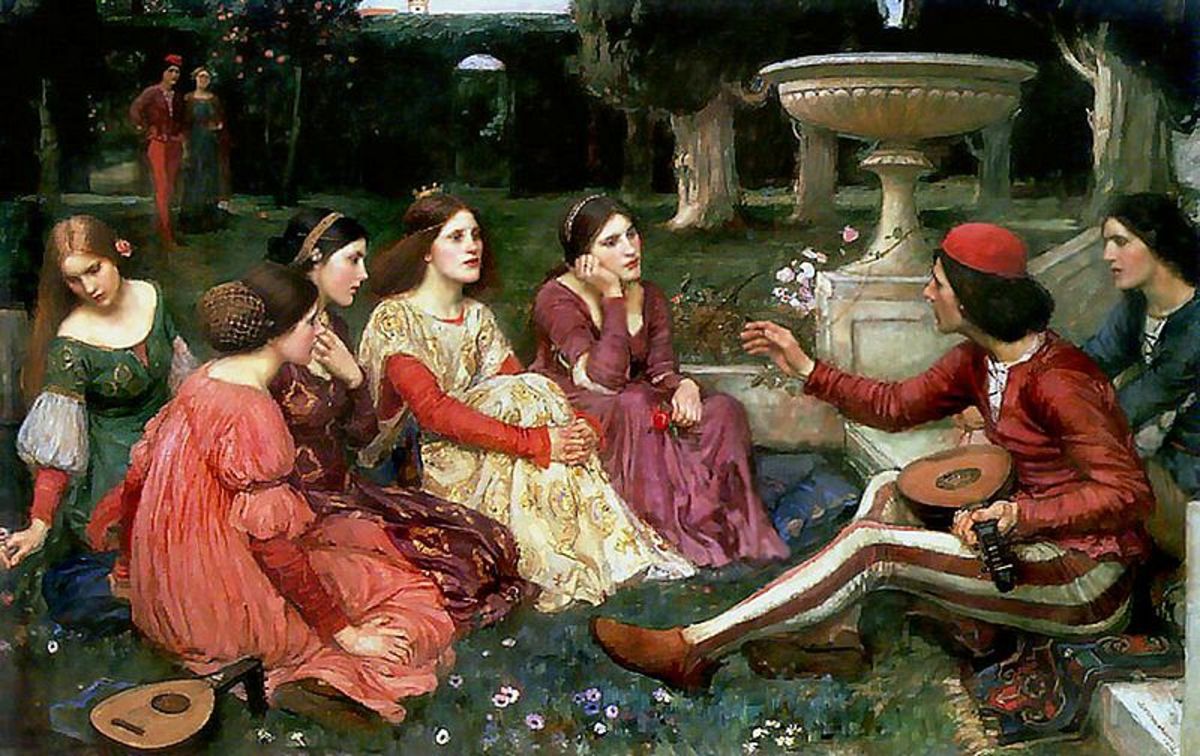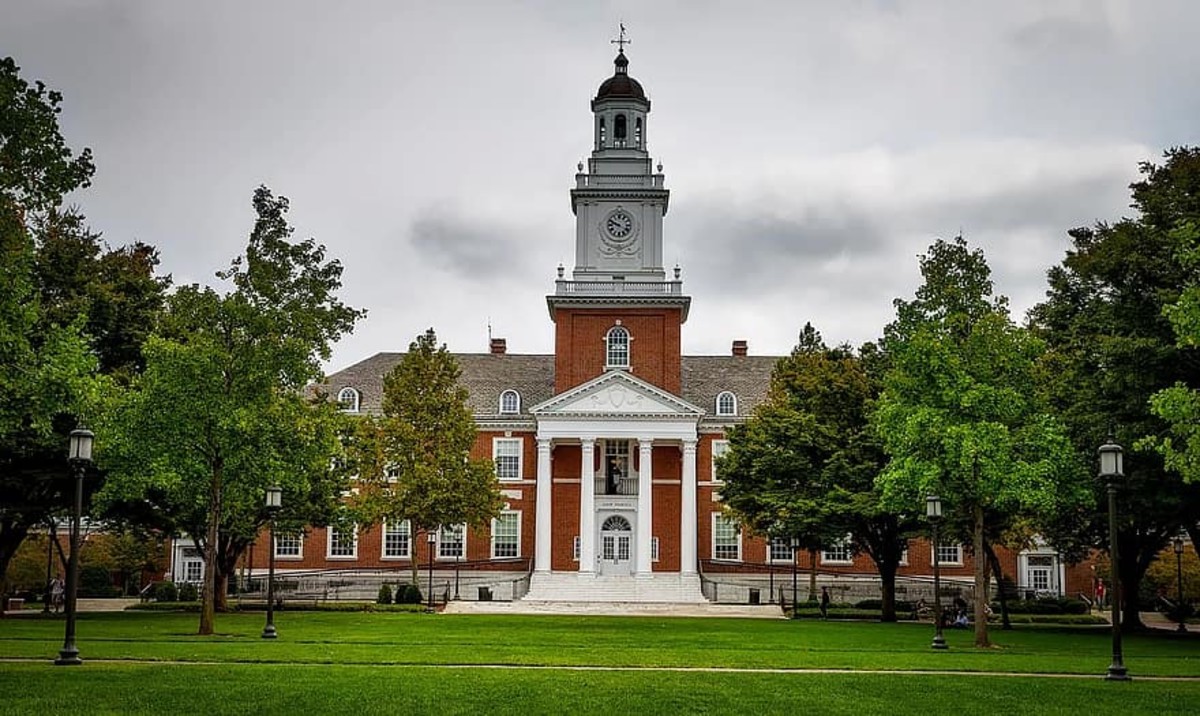Letter to My Future Self: Justifying My English Major to the Self of 2020

Written as a senior English major in 2010...
Dear Self of 2020,
I feel that before I say anything else to you, the matter of pronouns must be discussed and clarified. Perhaps it is anticlimactic for you to open a letter from the you of 2010 only to find yourself immediately confronted with a grammatical quibble rather than the revelation of some deep truth about yourself that you have come to forget over the past ten years of grad school, law school, marriage, parenting, copy editing, or whatever else it is that the world has had in store for you, but it is an undeniable fact that writing a letter to you, who are also me, who in conjunction with the me writing this letter forms a strange sort of “we” or an “us,” is a highly confusing endeavor. Should I be discussing “my” experience at college or “your” experience? Or is it best described as “our” experience? While writing in the first person might make you feel as if you are reading about somebody else’s experiences, writing in the second person could make me feel as if I’m writing about someone else’s experiences. Meanwhile, writing in the first person plural turns us, a single person, into a pair. To spare myself any kind of confusion, I will refer to myself as I am now by the first person “me” and to you as you are now by the second person “you,” as if you were a different person entirely. And, in all likelihood, you are.
As I type this, I find myself wondering if you actually finished reading the previous paragraph with any kind of interest, if you remembered writing it and thus skipped ahead, or if perhaps, you simply rolled your eyes and continued on to this paragraph, having no time for linguistic nuance amid the more practical concerns of your present life. I am sure that by now, you have a job. You have an off-campus, non-seasonal home, and maybe even a family of your own. Whatever it is that you do, I hope that you still read, not only from books or the internet, but from life in general. I hope that you still take an active part in analyzing and interpreting the ideas around you and that you think and respond critically rather than assimilating passively, even if in your current, possibly cubicle-bound environment, that kind of active questioning is seen more as a liability than an asset. In short, I hope that all the lip service I pay to the value of a liberal arts education today has some kind of meaning to you still; I hope that it is not with a shake of your head that you read this letter from your naïve past self who passed up the opportunity for vocational training in favor of an education in Shakespeare, cultural criticism, and other subjects of seemingly little value in your current work environment.
However, if you do find yourself looking back and questioning any of the educational choices you made as an undergrad, I would like to take this opportunity to remind you of exactly why you made them. Contrary to the beliefs of certain family members or perhaps to the beliefs that even you might occasionally entertain now, you did not become an English major out of laziness. Or, to adhere more strictly to the pronoun usage I laid out in the first paragraph, I did not become an English major out of laziness. I did not simply default into the discipline because math and science were too hard or because my standardized test scores showed that I would have an easy time with it; one does not become a triple major because it is easy. I became an English major, and a history and medieval and early modern studies major as well, because I love it. I have rationalized that love in the past with assertions of the power of language, the importance of critical thinking, and the necessity of an education in history and literary tradition to an informed evaluation of the present, but as firmly as I believe in those values, they are not truly reasons. They are merely justifications. My reason for choosing as I did was that I loved it, and I hope you love it still, even if it has not turned out to be the most financially lucrative enterprise.
While at this point in my life, I feel frighteningly uncertain about the shape that my future will take—beyond the fact that I will probably require additional education, either in preparation for a career in academia, as I have always thought, or in some other vocation, such as publishing or law— I hope never to question the value of my experiences at college, considering that, as I wrote in my essay for a scholarship last spring, “I did not come to college to be trained in a vocation; I came to be educated… To receive vocational training is to cultivate the means to a better living. To be educated is to cultivate the means to a more meaningful life.” Those who would measure the value of an English degree by its potential monetary benefits miss the point; they see education as a means to a material end rather than as a valuable end in itself.
When I first came to college, I expected that involvement with the English department
would help to hone my writing skills and to familiarize me with the canon of great literary works in English, and I used my planned coursework in education to justify my choice of major to anybody who suggested that it might land me a nice home in a refrigerator box shortly after graduation—If you’ll remember, I planned on double majoring in English and history with a minor in theatre and endorsements to teach all three in the beginning, a plan which lasted for one delusional semester before I acknowledged it to be impossible. And, while the English department did indeed help to improve my writing skills and familiarized me with a great many of the most well-known works and writers in English, I found that this was neither its greatest benefit nor its principle aim.
Rather than simply familiarizing students with the canon, English classes from surveys to seminars have been concerned with questioning and evaluating it, and in fact, with questioning and evaluation in general. The high value placed on questioning, analysis, and active, well-reasoned thought is, to my mind, the English department’s greatest strength. And, that well-reasoned thought was not to be applied solely to generating essays about a sacred canon of “great” English literature; it was to be applied to anything and everything, a point clearly demonstrated in Professor M’s class on “Fairy Tales, Walt Disney, and Cultural Criticism” late in my freshman year. While some students objected to “reading too much into” the hallowed fairy tale classics of their childhood, I came to the conclusion that nearly everything in life is a text, and should be read, rather than passively absorbed. While others objected to the criticism of a thing popularly viewed as above criticism, I objected to the unthinking assimilation of material purporting to be entirely innocent and apolitical, because in truth, nothing is entirely innocent and apolitical, regardless of the author’s intentions. And, while you may recall having a friend, a fellow English major who hates literary criticism and classes spent talking about concerns of substance “less than air,” you should remember always that texts are everywhere, and to scrutinize them and respond to them actively is to think and live actively and to endow that life with meaning.
In addition to the aforementioned lesson, my time in the English department has broadened my experience of the world, allowing me to travel twice to the United Kingdom, which has not only provided new experiential “texts” for me to draw upon, a context in which I can place the works of authors like Shakespeare, Wordsworth, and Lewis Carroll, but has also given me greater confidence and a wider sense of the possibilities open to me. My first experience, at Oxford, although admittedly a transfer credit sought out independently of the department, exposed me to a different style of college education. In one-on-one sessions with Oxford-educated tutors, I learned that I could pull my intellectual weight in a rigorous, even somewhat intimidating academic environment, far from the comfortable Iowa classrooms that had been my only prior educational experience. Additionally, the mere fact that I was accepted to an academic program in Oxford and that two years later, I was back in the UK, seeing a broad range of theatre; learning to “read” the architecture of cathedrals, castles, houses, and apartments; and never once feeling that the trip was redundant in light other travel experiences provided me with a greater sense of the enormous variety of enriching opportunities available to those who consider them possible and actively seek them out. The academic awards that I have received during my time at college have served to further bolster this sense of opportunity and confidence, and I find myself in my senior year less likely to give up on a goal or an idea, even an unlikely one, without first attempting it.
If I can say that I have any regrets at this point in my undergraduate career, they have nothing to do with my choice to pursue majors that I love. Instead, I would consider my two greatest failings to be my inability to find time in my schedule for coursework in creative writing and my early unwillingness to consider any kind of career outside of academia. While the first of these can be easily fixed through the pursuit a continuing education course in creative non-fiction or something else that interests you (and I hope that it has by the time that you read this), the second seems bound to throw a major wrench in our plans, considering that senior year is a bad time to get cold feet about one’s career choice. As I write this, I wonder if you ended up going to graduate school for English or law, if you took coursework in publishing, or if you are somehow still undecided on a permanent career path, having dabbled in many fields, but found satisfaction in none. College is supposed to be a person’s time for dabbling, but I’ve squandered it by insisting that I knew what I wanted for the first three years and balking at the nearness and reality of it in the fourth. This seems not to be the time for uncertainty, but it’s not the time for hard-headed single-mindedness, either. Whatever I end up deciding, I sincerely hope that you have made the best of it.
Your Past Self,
PBJDoom





